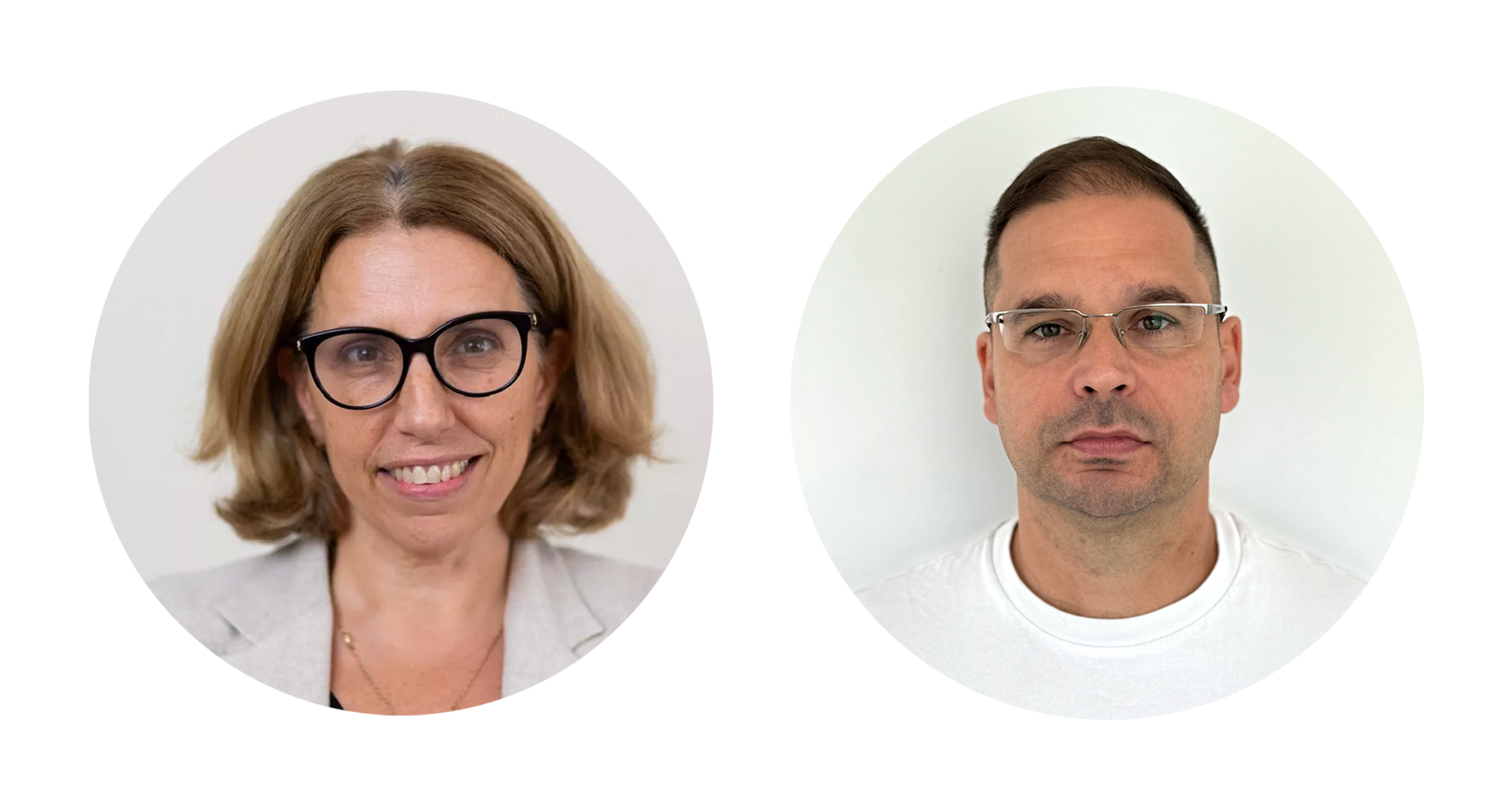
Sep 23, 2024
We are delighted to let you know that the General Assembly in June elected Hariklia Proios as our President for a second term. Hrvoje Jurlina was elected as our new Vice President. Congratulations!
Read what their ambitions are for the coming years.
Hariklia Proios, SAFE President
What is your background?
I’ve spent the last 25 years of my life working to support people affected by stroke, something that has taken me across both the U.S. and Europe. My background is in speech-language, and I am a professor at the University of Macedonia and recently I am also at the CSD department at Adelphi University in New York.
The most rewarding part has been creating and running support groups wherever I go. It’s been such a privilege to work with people from all walks of life, helping them navigate the challenges that come with life after a stroke. I’ve also had the honour of serving as President of SAFE for the past three years. Working with our incredible team to advocate for stroke survivors has been a really rewarding experience.
What is your vision for the future of SAFE?
Looking ahead, my vision for SAFE is simple: I want to keep fighting for stroke survivors. My goal is to ensure that no matter where they live or what resources they have, every stroke survivor gets the care, support and respect they deserve. The disparities in stroke care across different European countries are heartbreaking – some places provide incredible support, while in others, people are left to navigate recovery on their own. That’s something I’m determined to work to change.
We have already made great strides towards this with our work on the Stroke Action Plan for Europe and our Life After Stroke Forum. In the next chapter, we need to build on this work with our member stroke support organisations, working together to deliver campaigns, advocacy, research and raising awareness.
Hrvoje Jurlina, SAFE Vice President
What is your background?
I am a doctor of Family Medicine at a Community Health Centre in Zagreb. My professional journey took a profound turn ten years ago when, at the age of 39, I experienced a stroke at work. That moment became a catalyst for my commitment to improving the needs of stroke survivors, as well as the needs of their families and caregivers.
Five years later, my father suffered a massive stroke and I became his primary caregiver until his passing ten months later. This experience reshaped my perspective on stroke, not just as a survivor, but as someone who intimately understands the emotional, physical and logistical challenges faced by caregivers.
I was recently appointed as Vice President of SAFE and serve as Second Vice President of the Croatian Stroke Society. These roles allow me to merge my personal experiences with my professional expertise, offering a unique, three-dimensional perspective on stroke care and advocacy.
What is your vision for the future of SAFE?
My vision for the future of SAFE is to continue being the strong voice for stroke survivors, advocating for improvements within healthcare systems to ensure comprehensive recovery. We aim to educate about care options and empower stroke survivors and their families by advocating for their rights. SAFE holds a unique position with our ability to unite all the key players, healthcare providers, social services, patient advocate groups, and the families of stroke survivors, into a coordinated and collaborative approach to post-stroke care. I believe that with continued advocacy and collaboration, we can create a healthcare environment that supports stroke survivors through every stage of recovery, offering them not just survival, but a meaningful quality of life.
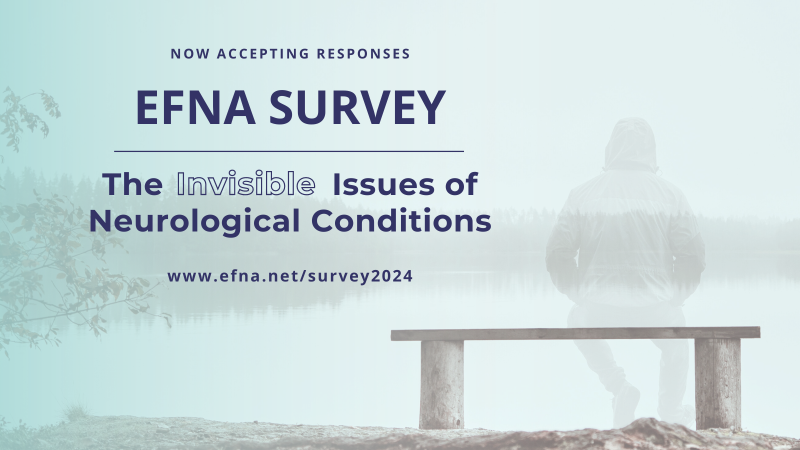
Jul 23, 2024
The European Federation of Neurological Associations (EFNA) has launched a new survey to assess and quantify the invisible issues affecting neurology patients and caregivers in Europe.
The aim is to identify, measure and report on these invisible issues (for example pain, stigma, fatigue) as faced by those affected by neurological conditions, either as patients or caregivers. Data generated through this survey can be used to create awareness of these issues and to advocate for change to address them.
This survey is open to anyone over the age of 18 who is living with a neurological condition, or who is carer to someone living with a neurological condition, that resides in Europe. It is available in 8 languages: English, French, German, Spanish, Portuguese, Italian, Polish and Romanian.
Findings from the survey will be published on the EFNA website later this year, and included for presentation at the next meeting of the MEP Interest Group on Brain Health and Neurological Conditions.
The survey will be open until 30/08/2024.
Click to respond to survey.
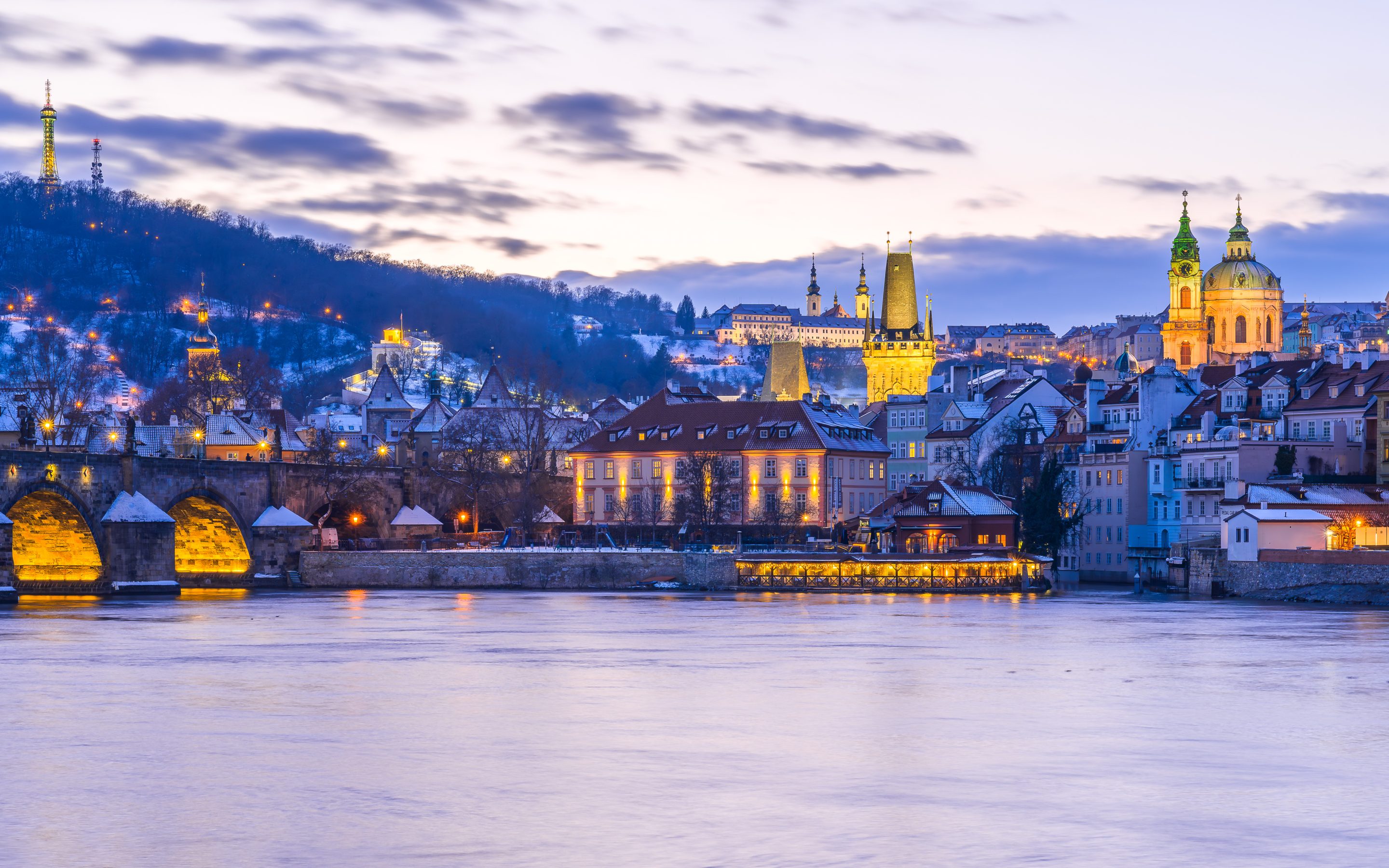
Jul 9, 2024
We are pleased to announce that our third in-person European Life After Stroke Forum in Prague is now open for registrations and abstract submissions.
The Forum is a unique event where healthcare professionals, researchers, policymakers and those affected by stroke can come together to address the issues of life after stroke. Our programme will be filled with the latest research and best practice, with the voices of people with lived experience at its heart.
We are actively seeking abstracts in two categories:
1. Scientific abstracts – share your stroke-related research, whether it’s ongoing or completed.
2. Services abstracts – have you developed innovative practices in life after stroke? It’s your opportunity to showcase your experiences and inspire others with your ideas.
Submission deadline: 7 October 2024
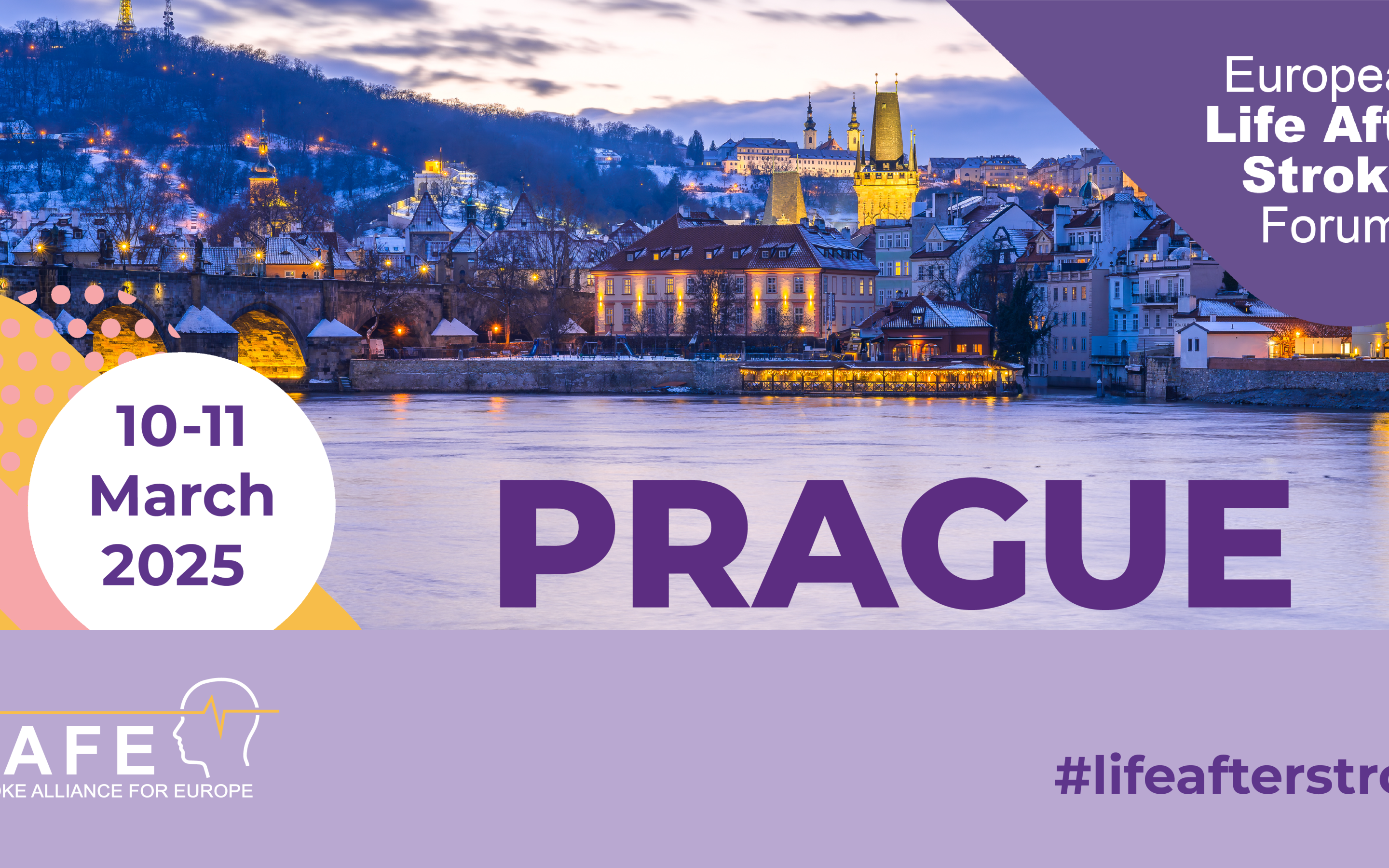
May 22, 2024
We are pleased to announce that the third in-person European Life After Stroke Forum will take place in Prague on the 10-11 March 2025.
The Forum is a unique event where healthcare professionals, researchers, policymakers and those affected by stroke can come together to address the issues of life after stroke. Our programme will be filled with the latest research and best practice, with the voices of people with lived experience at its heart.
Abstract submissions and registrations will open in July, sign up to our ELASF newsletter here to be the first to receive more details.
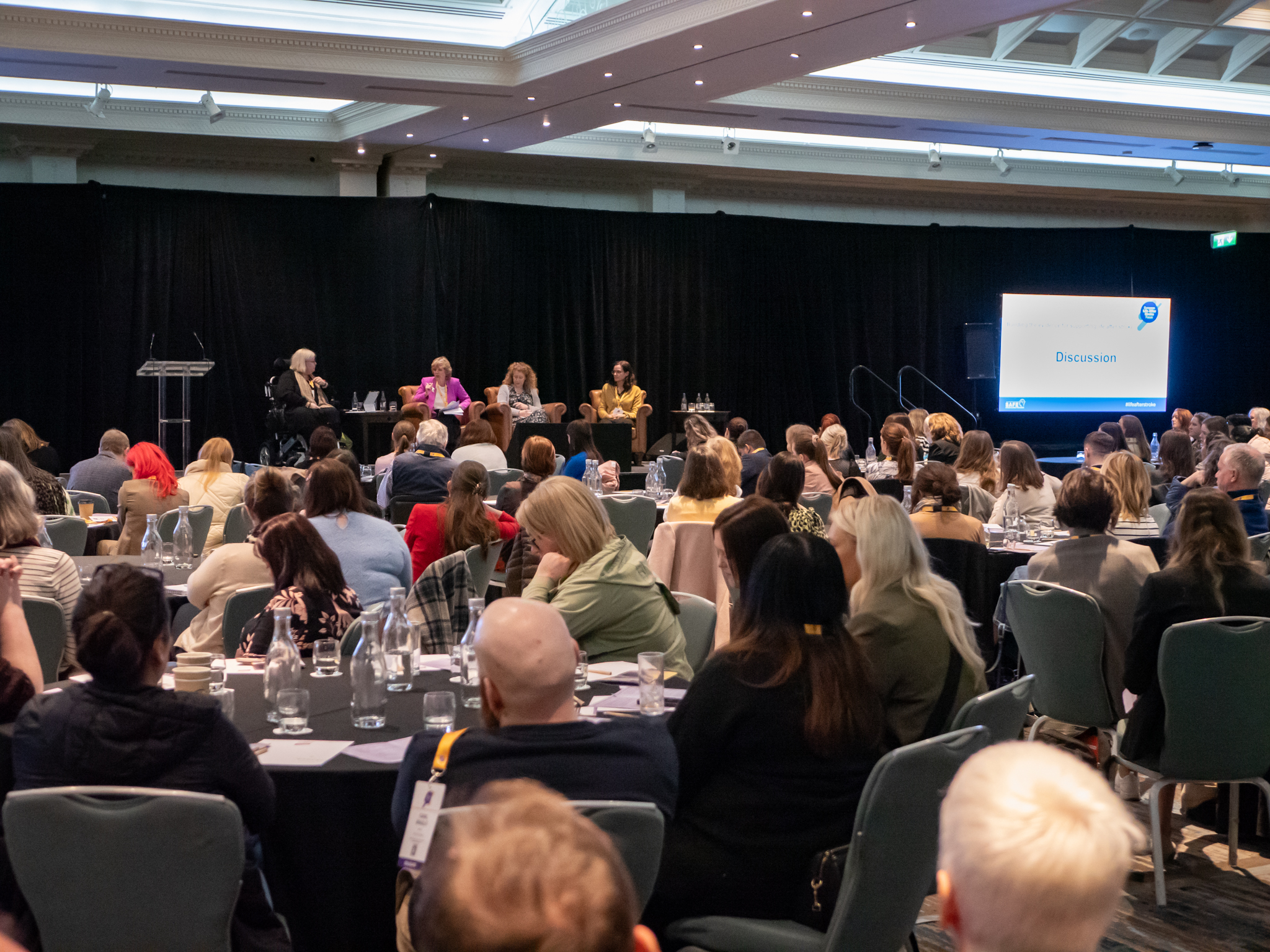
May 16, 2024
Did you miss the European Life After Stroke Forum or want to learn more after attending? Here is a summary of our Forum highlights:
- Abstract book: The book of abstracts features all the accepted abstracts, including oral, scientific and service submissions. Download Abstract Book
- Speaker slides: Access the event presentations from our speakers. View Speaker Slides
- Event report: Download the event report to get a comprehensive overview of the Forum’s sessions and activities. Download Event Report
- Event photos: View a selection of photos from the event here.

May 15, 2024
A story of denial, consequences and a wake-up call
Imagine a typical morning drive to a meeting in Padua, Italy. That’s where it all started for me, just another day, or so I thought. But a strange feeling in my car’s steering wheel set off a chain of events I never saw coming. I wasn’t feeling great that morning, but I brushed it off as just a bit of flu. Even when I started feeling dizzy and my leg went numb, I kept telling myself it was nothing serious. It wasn’t until I struggled to speak during a meeting that I realised something was seriously wrong.
I let someone else drive me to my next meeting. I got home and had dinner. I was feeling worse by the minute. Despite my wife’s pleas, I refused to go to the hospital. I was convinced I could tough it out, even though deep down, I was scared that I had had a stroke. You see, my sister-in-law had a stroke a year earlier, so I knew the symptoms
I said to myself ‘I’m living a very healthy life anyway, I do sport, I haven’t smoked for years, so I certainly don’t have any problems’, but I understood, even if I didn’t want to admit it, that something ‘big’ had happened. I had stopped taking all the pills my doctor had prescribed a while ago, statins, aspirin and blood pressure pills and I had a very busy job that regularly kept me away from home, eating in restaurants.
The next day, things only got worse. Finally, I gave in and went to the hospital. That’s when everything changed. Turns out, I’d tried to ignore my stroke, thinking I was both Rambo (I was angry, but this was not going to get me) and Peter Pan (I am not even fifty – I am too young for this). From that moment on, life changed, not only for me, but also for my family.
My message to you – one thing is certain; you know when something very bad is happening to you. Recognise it, know it! You don’t have to pretend you don’t notice or that you are superior. If you don’t have time to stop for a check, fate will stop you. Ignoring warning signs and thinking you are too young or too invincible only leads to trouble. Listen to your body and take care of yourself!
By Claudio Mari












